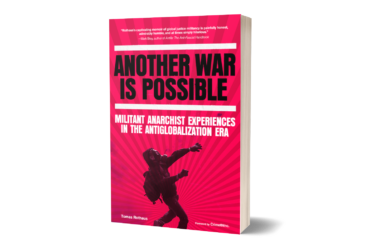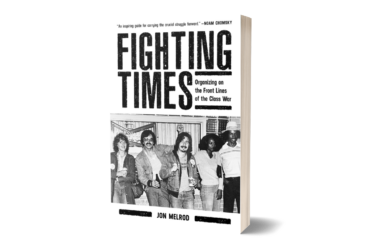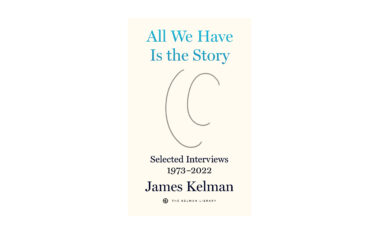Translation and commentary
by Brian Bergstrom
It was announced on April 6th that Tomoyuki Hoshino’s 2010 novel OreOre (lit.: Me! Me!) was chosen to receive the 5th annual Oe Kenzaburô Literary Award! This award is conferred to a book the Nobel Laureate deems important enough to be introduced to a larger audience not only within Japan but outside it as well, and includes guaranteed publication in English through a publisher of Oe’s choosing.
This is a fantastic boon to Hoshino’s prominence not only within Japan but the rest of the world, and there would seem to be no one better suited to navigating the responsibilities and challenges inherent in this increased prominence. PM Press is proud to be publishing the first translations of Hoshino’s work into English, including the novel Lonely Hearts Killer (translated by Adrienne Carey Hurley) and the upcoming collection of short stories and novellas, We, the Children of Cats (translated by Brian Bergstrom, with an additional translation by Lucy Fraser).
Indeed, on March 1, 2011, just over a month before the announcement, Hoshino addressed these issues head-on in the blog post translated below. It’s a piece that shows how seriously Hoshino takes his position as novelist and intellectual, a testament to his integrity as a public figure dedicated to bringing to light the voices, concerns and perspectives routinely relegated to the realm of the minor in Japan and elsewhere.
This dedication can also be seen in the things he has been writing in his Twitter stream and revamped blog, selections from which have been translated into English and published on the Project East360 blog (east360.wordpress.com).
Undoubtedly, this finely tuned sense of ethics, along with an unparalleled literary imagination, that led Oe to make his choice. Congratulations, Hoshino!
On the Trap of the Major
Tomoyuki Hoshino
original post
There’s a trap that public intellectuals – authors, scholars, pundits, journalists, and the like – often fall into once they become major figures.
Becoming a major public intellectual means that one’s words receive attention from a large amount of people and thus have a certain power of influence; in essence, such a person becomes a kind of media outlet. And these days, if one takes advantage of digital technologies and the internet, one can quite literally become an individual and media outlet simultaneously, and when someone in that position becomes “major,” he or she likewise becomes a mass media outlet.
We live in an age when any individual, as an individual, can become a media outlet, but the situation of a major public intellectual is different than that of an average, nameless citizen. The major public intellectual has been given a power of self-expression approximating that of a minor mass media outlet, a magnified right to free speech. And this magnified power of self-expression can be a trap.
For many public intellectuals, the things they said at the start of their careers, when they were still nameless, carried a strong sense of coming from the minority position. There was a sense that they bringing to their audience’s attention information, realities and forms of thought that were otherwise hidden. It was important for them to put these things into words precisely because they were otherwise powerless.
When these people become major figures, though, they frequently speak as if still powerless, despite the sudden increase in the number of people paying attention; therein lies the trap. The minor mentality invariably includes within it an aggressiveness borne from awareness of oneself as victimized. Without borrowing a certain kind of violence to assert their very existence, unrecognized people speaking from minor positions will not be heard at all. In this sense, I feel that minor discourse cannot do without this kind of aggressiveness, and that, as long as it does not become excessive, it’s indispensable.
However, what happens when public intellectuals in major positions continue speaking as if still minor, spewing words filled with the aggressiveness borne from an exaggerated sense of their own minority status? These people already have the powers of self-expression and free speech conferred to individuals cum media outlets. So this aggressiveness not only bears the dubious power to incite its audience, but also to suppress weaker voices as well. But, since these people still think of themselves as minor, they assume their words cannot have the power to suppress others’ voices. People in this position think of themselves as continuing in the same way they had when they were minor, but from the outside, it produces the impression that, “Oh, he’s changed. He’s gotten so oppressive now that he’s ‘important.’”
There are also those who end up cut off from the minority communities from whose position they used to speak, a result of becoming incorporated into the professional world of opinion. These people’s priorities shift to protecting their own newfound major status and expanding its reach rather than conveying to a larger audience realities and words that have gone unrecognized. As a result, these people end up using their powers of self-expression to demonstrate their own status and shore up their “major” position. “I use words to effect change” becomes “my gaining power is the same thing as effecting change,” and all of these people’s energy goes into defending that power. So the resulting discourse serves only these ends: advertising the speaker’s status as a major figure and propping up his or her power to speak. In other words, it serves to betray the very things he or she once represented.
Once it has reached this point, it no longer matters how magnified a discourse’s influence becomes, it can never do anything but support the status quo. Even if the words themselves seem minoritarian, their context is majoritarian. This is why even in those instances when the things a person in such a position says seem unobjectionable, it seems nevertheless impossible to trust her or him. The power of words to break apart the violence of the majority, to vivify the position of the minority, lies not only in the words themselves but also in their context and their emotional core.
Once
people enter the world of professionalized opinion, they end up
appearing everywhere. And this is a sad thing. To take the recent
Tokyo marathon as an example, it is reminiscent of the feeling one gets
seeing corporate-sponsored athletes who have plenty of talent and
ability of their own “bellying up to the bar,” as it were. Public
intellectuals would be better served following the example of Yûki
Kawauchi* [who became famous by finishing third in the marathon as the
highest-ranking Japanese marathoner, despite “dropping out” of the
corporate-sponsored “elite” training program and training while working a
fulltime job in the public sector –translator’s note]
—March 1, 2011
*explanatory link: http://www.asahi.com/english/TKY201103010381.html





